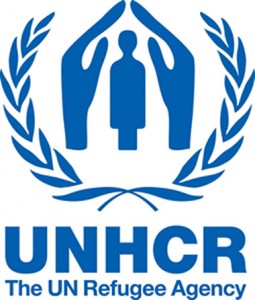There are more than 10,000 refugees in Ghana – UNHCR
 Currently, there are a little over 10,000 refugees in Ghana, Ms. Esther Kiragu, the United Nations High Commissioner for Refugees in Ghana, has revealed.
Currently, there are a little over 10,000 refugees in Ghana, Ms. Esther Kiragu, the United Nations High Commissioner for Refugees in Ghana, has revealed.
She said they were from Togo, Sudan, Burkina Faso, Liberia, Cameroun, among others.
And during this year, 7,000 refugees from La Cote d’Ivoire found solutions and many returned home while others will be regularising their stay in Ghana using immigration channels.
Ms. Kiragu announced the figure at a breakfast meeting, organised by Rotary Accra Airport Club in Accra, to raise funds in support of the eradication of polio.
The meeting comes ahead of this year’s World Polio Day, which falls on October 24, 2022.
Poliomyelitis (polio) is a highly infectious viral disease that affects children under five years of age.
The virus is transmitted by person-to-person spread through the faecal-oral route or, less frequently, by a common vehicle as contaminated water or food and multiplies in the intestine, from where it can invade the nervous system and cause paralysis.
Giving statistics on displaced persons, Ms. Kiragu said over 100 million people have been displaced by conflicts, out of which 30 million are refugee, and others Internally Displaced Persons.
She said most refugees are from Ukraine, Syria, Venezuela, Afghanistan South Sudan, and Myanmar.
“Closer to West and Central Africa, there are over 11 million people that have been forcibly displaced by conflict, out of which two million are refugees. The displacement in Northeast Nigeria is the fastest growing, followed by Burkina Faso just next door, “Ms. Kiragu said.
She added: “The important thing is to always realise that these statistics represent real people like you and me, families, women, men girls and boys whose lives are shattered, and they are forced to flee the borders and seek refuge.”
Ms. Kiragu drew a link between displacement of persons and becoming refugees as result of wars and armed conflicts and said these did not make such persons have access to health, education, and livelihoods.
She noted that at some point, whereas the vaccination coverage was almost 100 per in times of peace, there have been cases of re-emergence of polio and lack of access to vaccination due to discrimination or conflict.
She stressed peace and stability as pre-requisites to achieve the goal of eradicating polio.
Proceeds from the fundraising would support the Polio Plus Fund, through which Rotary International, along with its international partners, had reduced polio cases by 99.9 percent worldwide since its first project to vaccinate children in the Philippines in 1979.
“We are close to eradicating polio, but we need your help,” Rotarians who spoke at the meeting emphasized, adding, “whether you have a few minutes or a few hours, donate to the fund to make a global impact and protect children against polio forever.”
Rotarians have helped immunize more than 2.5 billion children against polio in 122 countries. For as little as $0.60, a child can be protected against this crippling disease for life.
Poliomyelitis (polio) is a highly infectious viral disease that affects children under five years of age. The virus is transmitted by person-to-person spread through the faecal-oral route or, less frequently, by a common vehicle as contaminated water or food and multiplies in the intestine, from where it can invade the nervous system and cause paralysis.
Since the Polio Plus programme’s inception in 1985, more than two billion children have received oral polio vaccine.
Source: GNA
